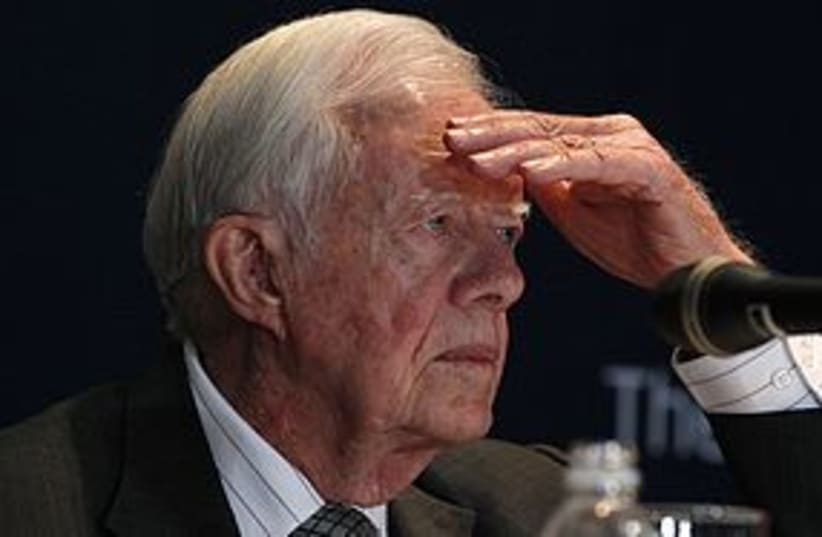Carter sees observer role in Egyptian elections
The fall of Mubarak has left the army in control of Egypt and Carter said he was keen that his teams should play a role, as Egyptian democracy campaigners want, in observing eventual elections there - something the generals have been hesitant about permitting, citing concerns about sovereignty.Carter, who plans to observe Tunisia's election later this month, said he spoke last week to Egypt's interim leader Field Marshal Mohamed Hussein Tantawi: "We have offered our services to monitor the election there ... and he's invited me to 'witness' the election. That's a distance from 'observing'."But even that could promote the democratic process, Carter said: "They're very careful about their sovereignty so we'll play whatever role they permit us to ... Any outside presence, even far short of official observer status, will help to deter improper election procedures. It helps to stabilize the situation. It gives some confidence to the opposition parties."
